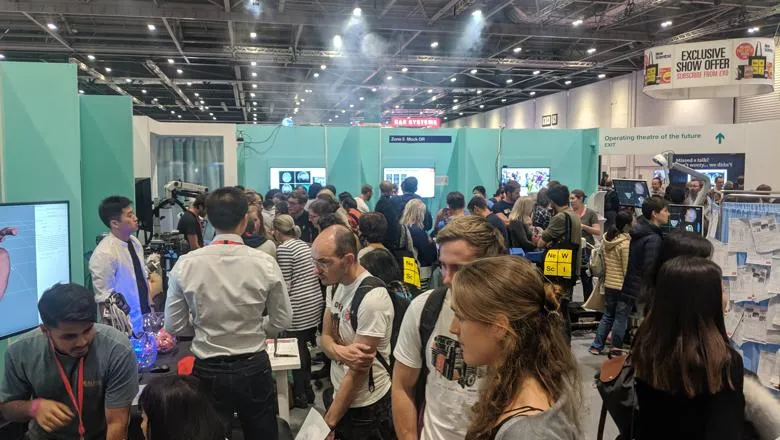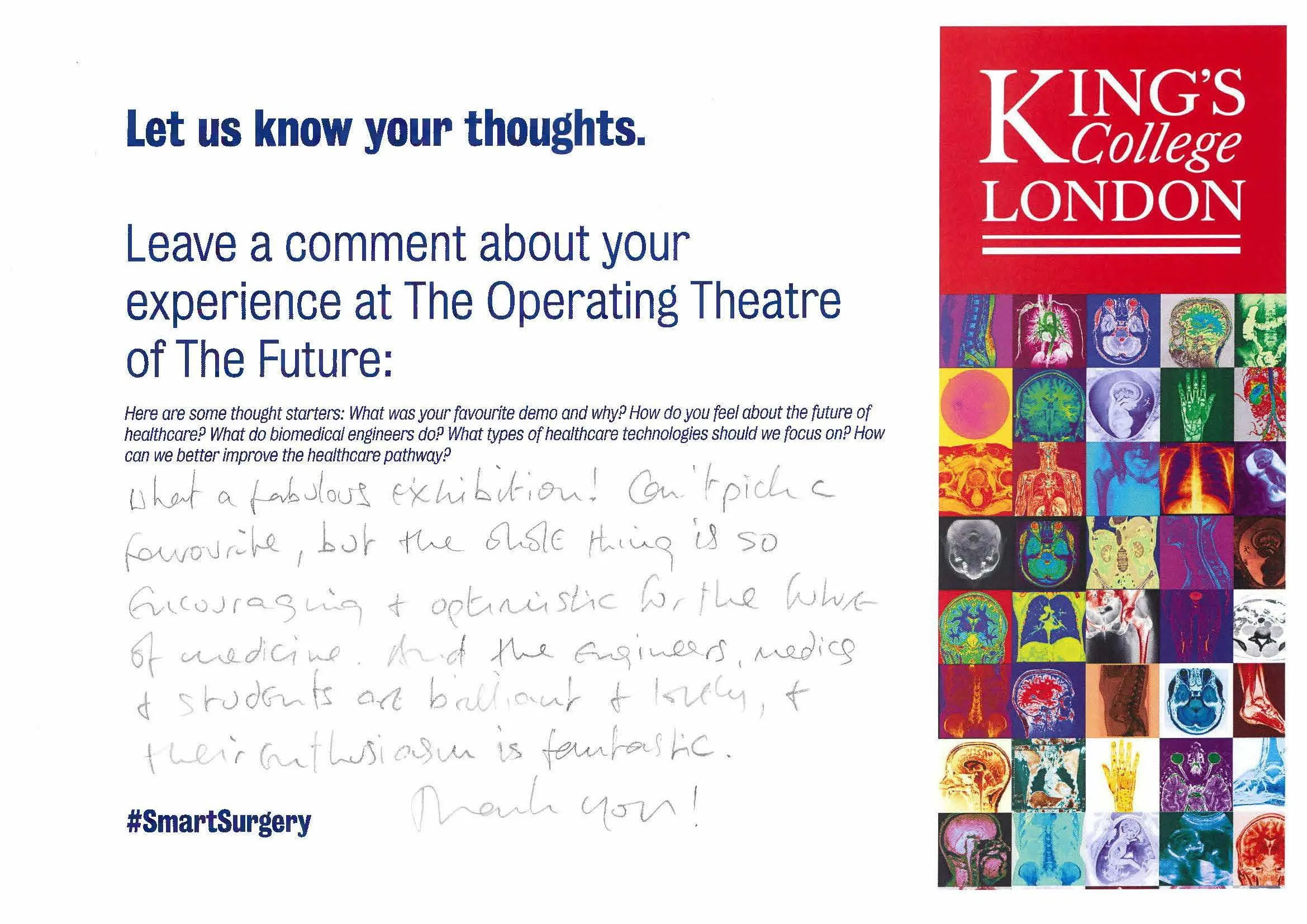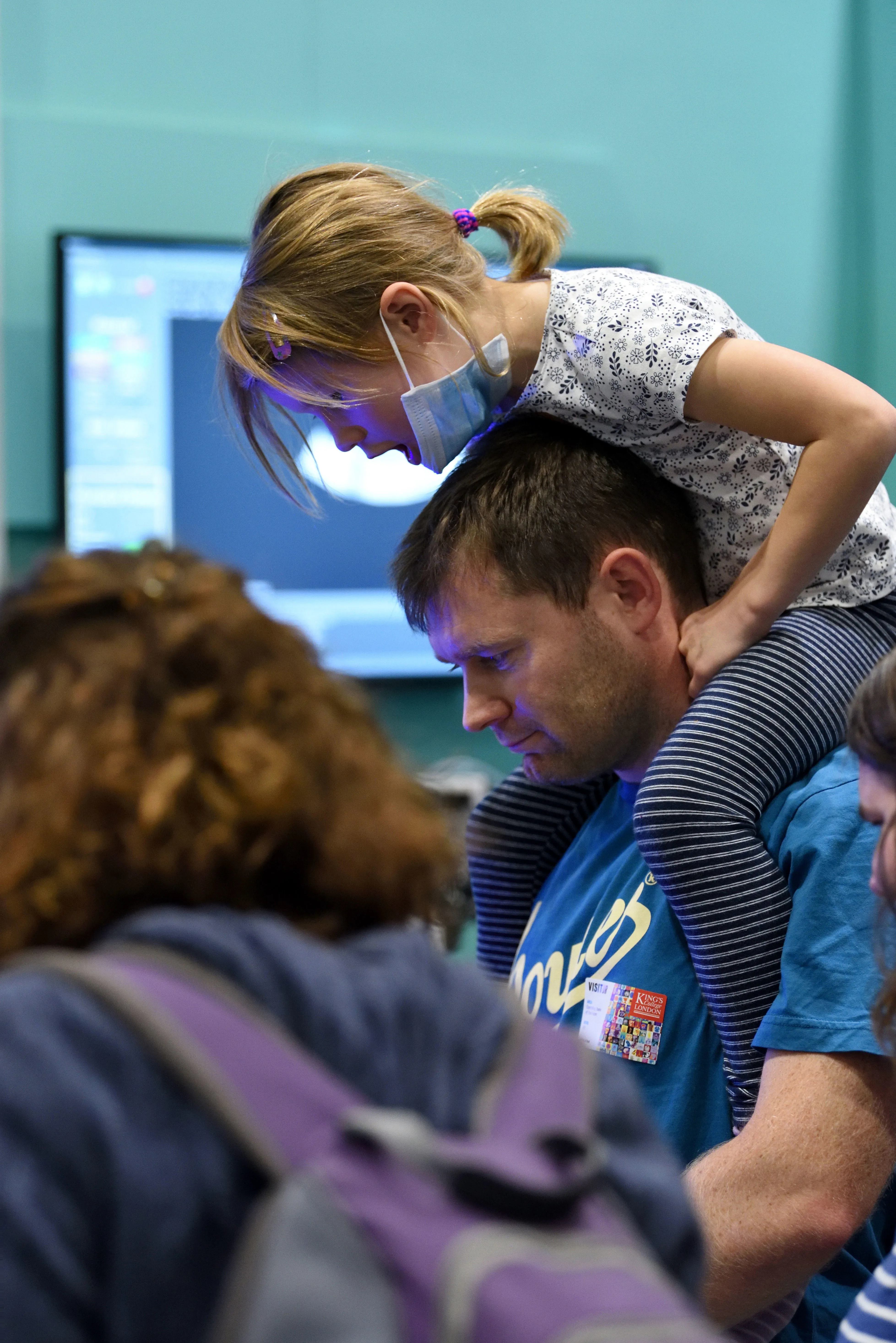“The success of our exhibition was a testament to the passion that the School’s researchers have for advancing novel medical technologies as well as to our commitment to engage with the public and communicate clearly the many complex and beneficial innovations we are developing every day. The work our researchers are producing seeks to establish a future of healthcare and a future of surgery which will make surgery better for everyone involved.”
Professor Sebastien Ourselin
28 October 2019
The Operating Theatre of the Future overwhelming success for School of Biomedical Engineering & Imaging Sciences
The Operating Theatre of the Future was heralded a success at New Scientist Live 2019

The futuristic medical technologies exhibition by the School of Biomedical Engineering & Imaging Sciences at New Scientist Live 2019 proved an overwhelming success at the four-day festival with over 10,000 visitors to the stall.
The Operating Theatre of The Future provided an explorative journey through potential future healthcare technologies with a total of 17 stations managed by a dedicated group of 100 volunteers who enthusiastically engaged with the public, shared details of their own research and those of their colleagues and fielded the many questions from the visitors.
On display was research including force feedback haptics for surgery, a soft endoscopic robot, three-dimensional fetal cardiac imaging, a micro-robot for retinal eye surgery, epilepsy software EpiNav, AI-driven 3D tumor segmentation, tools for fetal surgery, motion tracking demos and 3D anatomical models. An augmented reality OR activity was also run by partners Proximie, while at the centre of the exhibition was an operating table, a neuro-navigation system and a stealth station generously lent by partner Medtronic. The exhibit had a strong interactive character.
Visitors were encouraged to leave feedback regarding their experience, what they thought of the research and how they felt about the future of healthcare.
“Exceeded my expectations. Gave me confidence that healthcare is developing towards a more pain-free, accurate and patient-centric experience. Super impressive to see the actual researchers explain the work,” one visitor wrote.
Another wrote: “Absolutely fantastic – it’s great to learn about so much cutting-edge science coming to use in surgery.”
“Such an excellent stand. All the people were so informative and passionate about what they are doing. Very inspiring, especially for my children aged 9-12.”

Similarly, a surgery stories station provided visitors the opportunity to share what type of surgery they might have had, how they rated the surgical procedure, their time in hospital and communication during their stay in hospital.
With the feedback provided from visitors, researchers will be able to work collaboratively with clinicians and industry to develop biomedical technologies for the benefit of future generations.
The Operating Theatre of The Future continued to receive support online with the School's Twitter channel garnering significant impressions from audiences.
But the success of the School's presence at New Scientist Live 2019, which garnered international media coverage, could not have been possible without the continued support and dedication from volunteers, researchers, professional staff and partners throughout the year - a big thank you for everyone involved!

